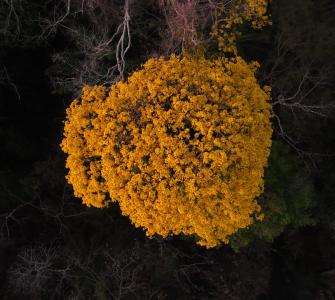Background
Bolivia’s Chiquitano, Cerrado, Chaco, and Amazon ecosystems face mounting threats from agricultural expansion and deforestation. The rapid conversion of natural forests to pastures and cropland has resulted in soil degradation, increased temperatures, shifting rainfall patterns, and declining water quality. These trends highlight the urgent need to transition toward agricultural practices that restore, rather than deplete, the natural systems on which production depends.
In response, Conservation Strategy Fund (CSF), together with the Fundación para la Conservación del Bosque Chiquitano (FCBC) and CREA Bolivia, launched the PRIAS project (Promoting Regenerative Agriculture for Sustainable Production) to test and evaluate regenerative agriculture and livestock systems across Bolivia’s main ecoregions.
The first phase (PRIAS I) successfully piloted regenerative practices with groups of producers in diverse soil and climate conditions, covering approximately 1,000 hectares. Farmers tested approaches such as service crops, soil microbiota restoration, reduced agrochemical use, and rotational grazing. These interventions improved soil fertility, enhanced resilience to drought and pests, and increased carbon sequestration. CSF’s economic analysis demonstrated that regenerative practices could be financially competitive and environmentally superior to conventional systems, helping producers achieve higher long-term productivity without further deforestation.
The PRIAS II project continues the pioneering work initiated under PRIAS I, expanding the reach and rigor of regenerative practice pilots in the Santa Cruz region. The initiative aims to strengthen both the technical and economic evidence that regenerative agriculture can deliver sustainable production while restoring essential ecosystem functions such as nutrient cycling, microbial biomass, and carbon sequestration.
CSF's Role
CSF leads the economic valuation and financial assessment of PRIAS II, analyzing the costs, returns, and environmental benefits of regenerative practices. Working closely with technical partners, the team refines valuation methodologies, optimizes field data collection, and develops clear, actionable recommendations for producers, associations, and policymakers.
By combining economic and ecological insights, CSF aims to demonstrate that regenerative agriculture is not only environmentally sound but also profitable and scalable for Bolivia’s leading agricultural sectors.
Key Outputs
- A validated work plan and tailored economic valuation framework
- Interim and final reports presenting detailed financial and environmental analyses
- Comparative tables illustrating cost-effectiveness and ecosystem benefits
- Case studies documenting successful regenerative transitions
- Dissemination of findings through workshops, field events, and partner networks
Next Steps & Impact
PRIAS II seeks to provide replicable economic models and policy guidance that encourage widespread adoption of regenerative systems across Bolivia. The evidence generated will support producers, governments, and investors in scaling practices that:
- Increase soil fertility and resilience to climate change
- Reduce production costs and input dependency
- Restore degraded land and avoid further deforestation
- Strengthen livelihoods and rural economies
By advancing regenerative agriculture as a tool for sustainable development, soil health, and climate resilience, PRIAS II contributes directly to Bolivia’s regional conservation goals and the long-term prosperity of its agricultural communities.
Read more about this project from our partners the Land Innovation Fund in this article.
This project is supported by the Land Innovation Fund.
___
Photo Credit: PRIAS Project

